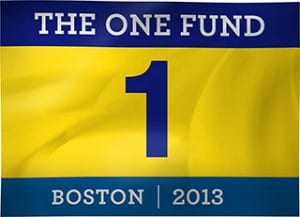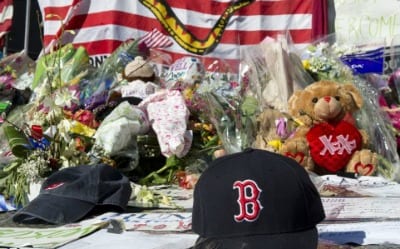Boston Tragedy Sparks Warning About Charity Scams
The registration of 125 “charitable” websites within an hour of the explosions at the Boston Marathon on April 15 brings light to the issue of charity scams.
In what is now becoming an all-to-familiar pattern, Massachusetts Attorney General Martha Coakley issued a warning to people to validate the charity before they donate, especially if the transaction is taking place online.
“After the unconscionable attack at the Boston Marathon, there has been an outpouring of support from people who want to help,” Coakley said in a press release. “We encourage people to do their homework on the charity before giving to ensure their money will go to the purpose they intend.”
Coakley’s alert echoes warnings from law enforcement agencies after the recent tragedies in Aurora, Colo., and Newtown, Conn. In both cases, scam artists set up websites that allegedly were collecting donations to be distributed to victims and their families.
Woman Arrested in Charity Scam
Some charity sites inevitably turn out to be bogus operations with most or all of the money ending up in the pockets of the site owners.
One New York woman was arrested after soliciting donations for the family of one of the children killed in the Sandy Hook Elementary School shooting. She allegedly told friends on Facebook that she was collecting the money for “funeral expenses.”
Authorities in Boston worry that the same thing is happening, after the tragic bombings that killed three people and injured nearly 200. Massachusetts Gov. Deval Patrick and Boston Mayor Tom Menino created a website called The One Fund Boston to help victims; is is considered the most legitimate place to donate.

The One Fund is considered the most legitimate place to donate.
However, many of the 125 domain names associated with the Boston tragedy don’t have that kind of accountability. Some of the domain names could not even be found just a few days later. Others claimed to be “under construction” with opportunities to donate money. Some sites actually opened with a warning for readers to be wary of any site soliciting donations for charities related to the tragedy.
“It is unspeakable that anyone would sink to capitalize on Boston’s sorrow as we recover from this tragedy,” Massachusetts Undersecretary of Consumer Affairs Barbra Anthony said in a statement to reporters. “We remind consumers to exercise caution and do their homework before reaching out to help.”
Ask Before You Donate
The Federal Trade Commission has a list of tips for anyone wishing to donate to any charity. The suggestions include:
- Ask for detailed information about the charity, including name, address, and telephone number.
- Get the exact name of the organization, and do some research. Searching the name of the organization online — especially with the word “complaint” or “scam”— is one way to learn about its reputation.
- Call the charity. Find out if the organization is aware of the solicitation and has authorized the use of its name. The organization’s development staff should be able to help you.
- Check if the charity is trustworthy by contacting the Better Business Bureau, Charity Watch or GuideStar.
- Ask if the caller is a paid fundraiser. If so, ask:
— The name of the charity they represent.
— The percentage of your donation that will go to the charity.
— How much will go to the actual cause to which you’re donating.
— How much will go to the fundraiser.
Sources:
- Siff, D. (2013, April 18). Scam warning: bogus Boston Marathon charities. Hlntv.com. Retrieved from http://www.hlntv.com/article/2013/04/17/charity-scams-boston-marathon-terror-attack
- Berkens, M. (2013, April 15). Now over 125 Domains Related To Boston Explosion Including 'Relief' Domains. Thedomains.com. Retrieved from http://www.thedomains.com/2013/04/15/update-now-over-0-domains-related-to-boston-explosion-including-relief-domains/


















